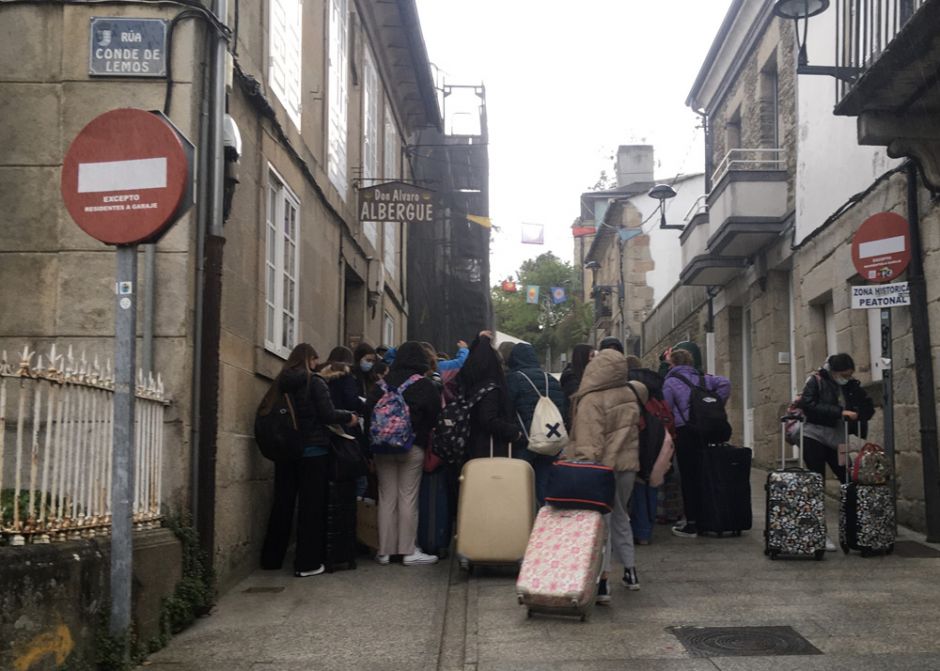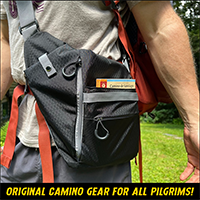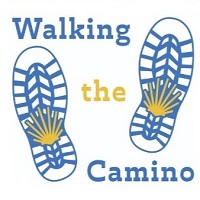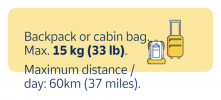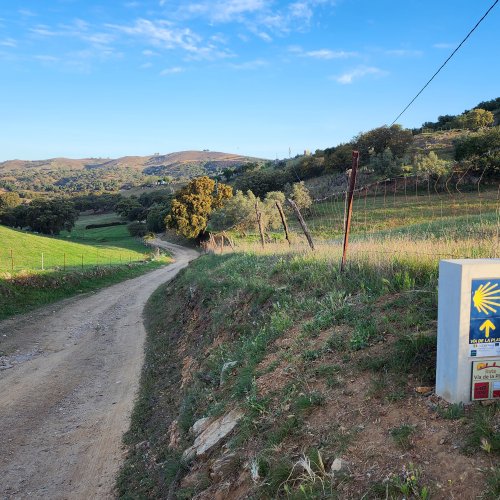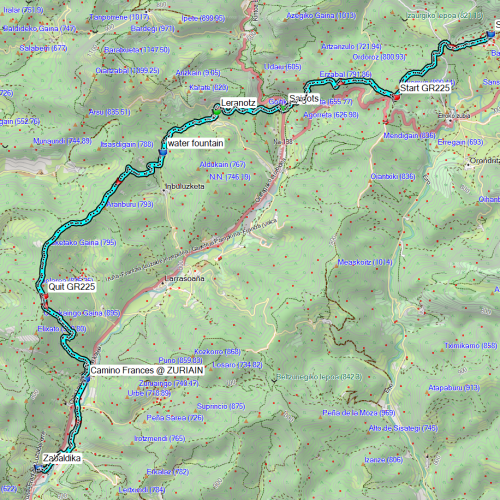One of the good things that foot-pilgrims frequently mention is the calming effect of the pilgrimage, and the opportunities it offers for contemplation, reflection, and self-improvement.
I sense in this thread an unfortunate deviation from that.
Here is a line of reasoning that might help.
My basic premise is that everyone is supposed to be free to walk their own Camino in their own way as long as they do not interfere with others.
Some pilgrims want or need to carry everything on their backs, and some want or need to have a transportation service provider move the heavy stuff forwards. Both are OK.
Technical compatibility of transported objects:
The technical characteristics (size, shape, mass, structural integrity, "snagginess" (i.e. "too many" dangling straps, buckles, and loops), cleanliness, ease-of-handling, safety, possible emissions of noxious fluids and odours, etc.) of objects that folks send from one location such as a lodging place to another location, affect and therefore must be compatible with the facilities and systems at both locations and also compatible with the facilities and systems of all of the the transportation service providers in the transportation chain.
Transport service providers and lodging places (including not-for-profit albergues and donativos) need to be able to operate safely, effectively, and in a reasonably repeatable manner. That requires that each one be free to decide for itself the technical characteristics of transported objects that will be acceptable to it.
Some transportation service providers and lodging places might decide that they will only accept backpacks - to avoid disagreements, the word "backpack" might need an unambiguous definition - and some might decide that luggage items that are of a more standardized shape and with more-standardised handles are easier and safer to handle, transport, stack, and store than are backpacks, and therefore they might permit suitcases. They might choose to also permit multiple large steamer trunks. Unlikely, but it could happen, and so what, as long as it does not interfere with others?
They will want people to comply with their required technical characteristics, therefore, potential customers will need to know in advance the required technical characteristics, to enable them to plan and to comply.
Establishing, maintaining, and publishing written specifications is a proven effective method to efficiently store and communicate to stakeholders, sets of technical requirements. Written specifications help to provide clarity and commonality of understandings, eliminate ambiguities, and reduce the occurrence of unexpected disagreements and strife. Stakeholders include e.g. management, internal staff members, cooperating organizations, and potential external customers.
All of this can be managed by the lodging places and transportation service providers, perhaps as part of their documented management systems. Some might decide to adopt some notional future Spanish-Camino-wide shared standard specification for transported objects, and some might want to go their own way. Both are OK, but to avoid unexpected disagreements and strife, their requirements need to be declared in advance of bookings.
The prescribed technical requirements for transported objects clearly affect the potential customers who want to have their objects transported from place to place, and that as it should be.
It is less clear to me how the prescribed technical requirements for transported objects affect people who are not customers of the transportation service providers or of the lodging places.
If something does not affect you, why get concerned about it?
Becoming judgmental about how others walk their camino, or how many changes of clothing they bring, or what type of luggage they use, or how many items of luggage they use, or why, is not a requirement for you to have a fulfilling pilgrimage, is not helpful to fhe community, and can interfere with the calming effect upon the judgemental person of their own pilgrimage, and the opportunities their own pilgrimage offers for contemplation, reflection, and self-improvement.
Perhaps it would be better for us all to just let it go, or, to phrase it more clearly, mind your own business.










